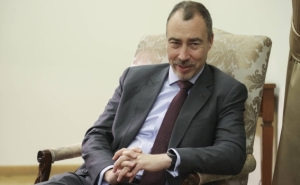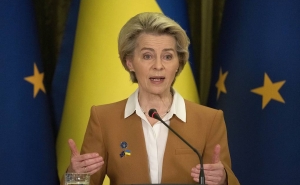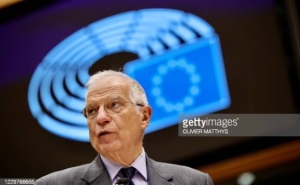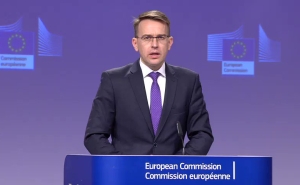 Spain: What to Expect After Elections
Spain: What to Expect After Elections

As the local and regional elections were held in
There were several points that are worth attention. The main one is that these elections marked an end of Spanish two-party system after about 40 years: People’s Party (Partido Popular) and Socialists. Two more parties that had recently stepped into the political arena joined the process: We can (Podemos) and Citizens (Ciudadanos). Podemos came to act after the mass protests in the country in 2011-2012, and was founded in January 2014. Now to some extent they may have a decisive role in the future policy of the country. Ciudadanos was also formed as a result of protests against the Government. The only difference is that Ciudadanos was formed in
In typically European style the EU in the face of Federica Mogerini calls them - the "anti-austerity Podemos and market-friendly Ciudadanos". What if they combine their forces?
In fact among the Socialists there are some new young and promising faces, but the election results showed that it's not enough to get the majority votes. They only managed to weaken the positions of the ruling People’s Party.
On the other hand it should be noted that such new movements as left Podemos and the centre-right Ciudadanos, demonstrated impressive results for beginners, but not good enough to bring any change: around 12% and 6% of the vote respectively.
The radical Podemos has turned into an instrument for forming a majority, and there is an opinion that it will form a government in alliance with the Socialists during the upcoming elections. It may not be a radical turn for the country but it is already something.
The past elections proved that the ruling People’s Party is gradually losing its local and regional power.
The movement that denies unemployment, reduction of welfare and country's two-party political system, gathered for the first time in
The existing situation seems to be hard for everyone. The Socialists are not sure what choice awaits them, thus prefer not to speak about the future. The population, that is willing to express its mistrust to the ruling political elite, and has been by Podemos, now sees the possible coalition with the Socialists as a bad idea, as for them the Socialist party is no better than the Conservatives. One thing is clear regarding the Socialists: whether they like it or not if they want to form a majority after the next general election, Podemos seems to be their only possible way towards it. If Podemos succeeds to have a majority and take over
In reality, as the two main parties are not capable of receiving the majority on their own, these small parties will be the ones who will shape the whole political picture and change the political discourse.
As we can see
In conclusion it should be stated that it is time for Mr Rajoy to understand that his policy no more satisfies the country's citizens: the policy he is implementing is outdated. Spanish people want to see new faces, new and fresh approaches in politics and they want to be listened to.
Other materials on this subject
- The European Union Has Decided to Abandon Russian Coal In the Summer Many countries have joined these sanctions, even if this necessarily implies economic costs for ourselves," he noted.
- Germany Faces Steep Recession if Russian Oil and Gas Halted, Bank Lobby Says "The situation would be even worse if imports or supplies of Russian oil and natural gas were to be halted. A significant recession in Germany would then be virtually unavoidable," Sewing told journalists.
- EU Leaders Agree on Joint Gas Purchases Last year, the European Commission proposed to the EU countries a system of joint purchases of strategic gas reserves as a way to provide a buffer against possible supply disruptions. Fears of supply disruptions...
- European Union Launches “Team Europe” Package to Support Partner Countries with More than €20 Billion: Reuters Most of the money is being reallocated from other, less urgent EU foreign aid schemes in the EU’s common budget, but Borrell said the European Investment Bank, the European Bank for Reconstruction and...
- The Guardian: EU Leaders Clash Over Economic Response to Coronavirus Crisis Meeting via a video link, the EU’s 27 leaders papered over deep divisions by agreeing that another fortnight was needed to discuss ambitious economic recovery plans. After a testy debate over "coronabonds",...
-
 17:08
17:08The regular session of the Anti-corruption Policy Council takes place in Jermuk
-
 15:05
15:05The Prime Minister sends congratulatory messages to the supreme leader of Iran and the President of Iran
-
 11:11
11:11Armenia sends earthquake aid to Turkey
-
 10:43
10:43Commemoration of the Pontiff St. Sahak Partev
-
 09:16
09:16Some roads are closed and difficult to pass in Armenia
-
 19:55
19:55Phone conversation of the Foreign Minister of Armenia with the U.S. Assistant Secretary of State for European and Eurasian Affairs
-
 18:30
18:30Prime Minister Pashinyan and President Khachaturyan meet
-
 18:20
18:20Ararat Mirzoyan with Co-Chairman of the OSCE Minsk Group of France Brice Roquefeuil
-
 17:01
17:01Humans could land on Mars within 10 years, Musk predicts
-
 16:45
16:45France, US urge 'immediate' end to Nagorno Karabakh blockade
-
 16:01
16:01Blockaded Nagorno Karabakh launches fundraiser to support quake-hit Syria
-
 15:59
15:59Earthquake death toll in Turkey rises to 18,342
-
 15:43
15:43Ararat Mirzoyan Held a Telephone Conversation with Sergey Lavrov
-
 15:06
15:06French president rules out fighter jet supplies to Ukraine in near future
-
 14:47
14:475 Day Weather Forecast in Armenia
-
 14:44
14:44President Vahagn Khachaturyan wrote a note in the book of condolences opened in the Embassy of Syria in Armenia
-
 14:20
14:20Azerbaijan’s provocations impede establishment of peace and stability – Armenian FM tells Russian Co-Chair of OSCE MG
-
 12:57
12:57France representation to OSCE: Paris calls on Azerbaijan to restore freedom of movement through Lachin corridor
-
 11:40
11:40Command of Kosovo forces highly appreciated preparation of Armenian peacekeepers
-
 10:16
10:16The United States withdrew from sanctions against Syria for six months the provision of assistance after the earthquake
day
week
month
Humidity: %
Wind: km/h









